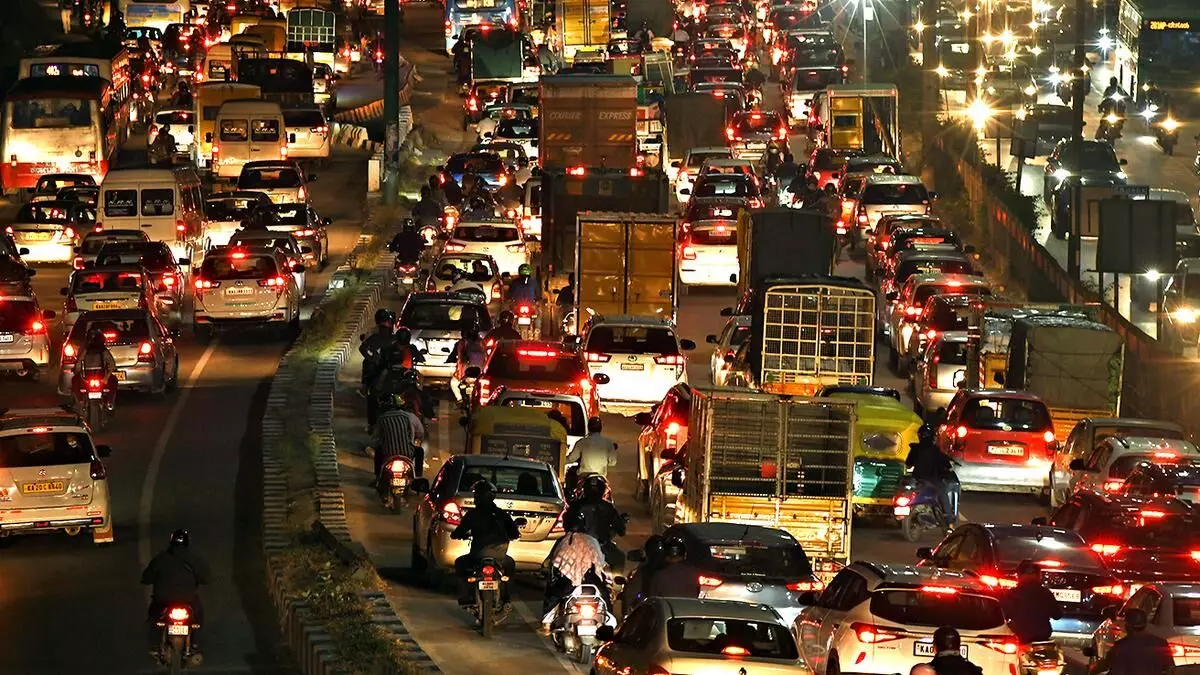
Bengaluru loses nearly Rs 20k cr annually due to traffic woes, says study
text_fieldsBengaluru is popularly known as the IT hub of the country. Apart from being the fourth costliest city in the entire country, it is also notoriously known for its traffic congestion.
A new study has now found that the city loses about Rs 19,725 crore every year because of its traffic problems.
The study, undertaken by a team led by MN Sreehari, an expert on traffic and transportation, says that Bengaluru’s infamous traffic woes cost the city an exorbitant amount of money every year.
Sreehari, a prominent transportation advisor to various governmental bodies and smart city initiatives, presented the study to Karnataka’s Deputy Chief Minister DK Shivakumar.
The recommendations within the study span traffic management, road planning, and flyover placement.
According to Sreehari, even though Bengaluru has more than 60 flyovers, they don’t actually help much because they have not been planned well.
The study found that the flyovers are too narrow, don’t have extra lanes for entering and exiting, and are not in the right places to solve traffic issues.
The city still loses a lot of money due to delays, congestion, stoppages at signals, interference of slow-moving vehicles with fast-moving, fuel loss, occupants’ time loss, loss of the vehicle time when converted into money, based on salary, and more.
Sreehari advocates the implementation of ring roads and radial roads, including outer ring roads, peripheral ring roads, and satellite town ring roads at 5-km intervals as a means to alleviate road congestion and accommodate the city’s positive evolution.
The study revealed that Bengaluru’s exponential growth in employment opportunities within the IT sector has led to a correlated increase in related facilities such as housing and education.
Over the years, the city’s population has surged to 14.5 million, with a corresponding vehicle population of approximately 1.5 crore.
The study also said that over the years, Bengaluru expanded from 88 sq km to 985 sq km and proposed that the city should expand to 1,100 sq km.
The study also said that the government should remove roadside parking as roads are meant for traffic and footpaths are meant for pedestrian walk legally. "As a transportation expert, I have failed to show even one road in Bengaluru without parking," Sreehari said.
In addressing these challenges, the expert team emphasised the promotion of mass transit alternatives such as metro systems, monorails, and high-capacity buses while discouraging private transportation.
The incorporation of artificial intelligence and robotics, along with informatics employing Variable Message Systems (VMS) for enhanced road user communication, was also recommended.






















